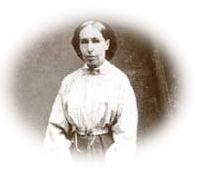 “S. R Spaulding,” Pamunky River, May 17.
“S. R Spaulding,” Pamunky River, May 17.
Dear Mother, — This has been a delightful day. The “Knickerbocker” got safely off at five o’clock this morning, after a rather anxious night. One of the men from the “Elizabeth” died, and another jumped overboard. He rushed past me and sprang from the bulwark. I heard the splash, but all that I, or any one, saw of him were the rings in the water widening in the moonlight. Boats were put off immediately, but he never rose.
Last night, being off duty, I went round to a number of Rhode Island men who were on board, and wrote letters or took messages for them. A coincidence—a real coincidence — occurred. I had heard Mr. Knapp telling Mr Olmsted of the death of a Newport man, David A. Newman, Fourth Rhode Island Volunteers. I asked for his effects, that I might some day take them home with me. In searching for them, a knapsack marked “Simeon A. Newman, Fourth Rhode Island Volunteers,” turned up without its owner, who had died in Washington in December, 1861. This knapsack had wandered on with the regiment; by chance it got on board our boat; by chance it came under my notice; by chance I spoke of it to one of the Rhode Island men, who said: “I know a man who knew Simeon A. Newman, and he is sick on board here now.” I hunted him up; he proved to be the nearest friend of S. A. Newman, who was color-sergeant of the regiment, and was with him when he died. He told me that after his death the widow wrote to beg that his sash might be sent to her; but though every effort was made, the widow writing again and again for it, it could never be found. I went at once to the knapsack, and there was the sash. I have sent them by express to Bristol, R. I., where the widow lives.
After the “Knickerbocker” was off we “took it easy;” came out to breakfast at ten o’clock, and transferred ourselves leisurely to this ship, which is a palace to us. We were rather subdued by our grandeur at dinner. Hotel-fare and men to wait upon us is rather elevating after eating salt-beef with our fingers. After dinner we ran up to West Point, where the York River forks, the northern branch being the Mattapony (pronounced Mattaponi); the other the Pamunky, along the line of which the army has advanced, — through the thirteen thousand acres granted by Charles II. to Ralph Wormeley 2d; strange, is n’t it, that I should be here now? They have had the pluck to run this huge vessel up this little river, without a chart, and not a soul on board who has been here before. The passage has been enchanting; we ran so close to the shore that I could almost have thrown my glove upon it. The verdure is in its freshest spring beauty; the lovely shores are belted with trees and shrubs of every brilliant and tender shade of green, broken now and then by creeks, running up little valleys till they are lost in the blue distance. I saw the beginning of the battle-field of Williamsburg (“long fields of barley and of rye” but a week ago), and the whole of the battle-field of West Point, still dotted with the hospital-tents, from which we have cleared out all the wounded.
The sun set as we rounded the last bend in the Pamunky; the sky and the water gleamed golden alike, and the trees suddenly grew black as the glow dazzled our eyes. We dropped anchor off Cumberland at dusk, and have just left the deck (on sanitary principles), where we were sitting to enjoy the lovely lights and listen to the whippoorwill. This is yachting on a magnificent scale; we feel rather ashamed of our grandeur, and eager to get back to a tugboat again. This vessel, which used to be a fine passenger steamship, has been employed by the Government as a transport for major-generals and their train. This accounts for the style in which she is equipped and manned. She is now filled with workmen, putting up three tiers of hospital-bunks in the hold and on the forward main-deck; after that is finished we shall begin to fit up the wards. To-day we have organized the pantry and store-rooms.


